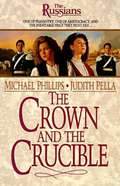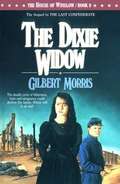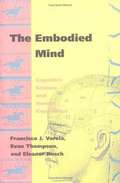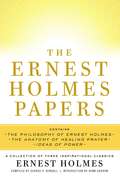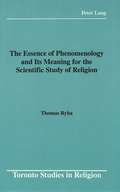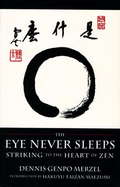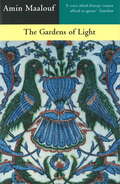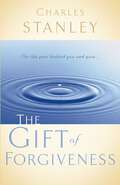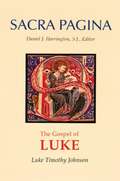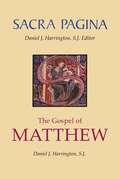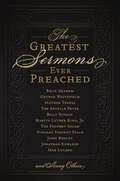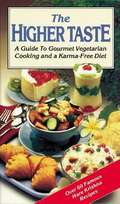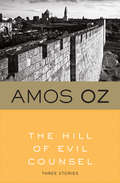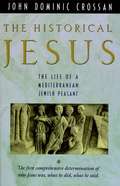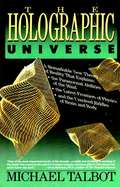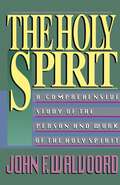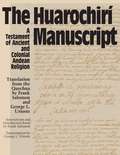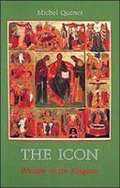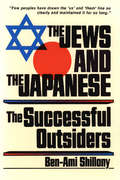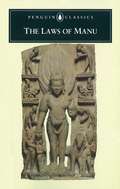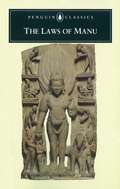- Table View
- List View
The Crown and the Crucible (The Russians #1)
by Judith Pella Michael PhillipsA magnificent saga of love and war, of political conflict and imminent change, of two women...<P><P> Against the vast and formidable backdrop of pre-revolutionary Russia, the lives of two families become inextricably entwined.<P> Anna Yevnovna Burenin, a peasant girl from the tine village of Katyk, must leave the home she loved to work in a prince's palace in St. Petersburg, bringing her family's heritage of faith with her.<P> Anna's future is altered forever when she is thrust into the presence of the high-minded, spoiled Princess Katrina. But even as Anna's own life is changed, her faith exerts a transforming influence over the willful young princess.<P> But the life of protected royalty in St. Petersburg cannot be isolated forever from the forces that buffet the mighty Russian Empire. While grand dukes and their duchesses celebrate New Year's at the Tsar's legendary Winter Palace, revolution brews and war in the Balkans seems inevitable. Both peasant and princess face the prospect of their beloved Russia being torn apart by conflict within and without.<P> Caught in the crosscurrents of history, who will survive?
The Dixie Widow (House of Winslow, #9)
by Gilbert MorrisAfter losing her husband during the Civil War, Belle Wickham's blind hatred for the North compels her to live with her Winslow relatives in order to spy for the Confederacy.
The Embodied Mind: Cognitive Science and Human Experience
by Evan Thompson Francisco J. Varela Eleanor RoschThe Embodied Mind provides a unique, sophisticated treatment of the spontaneous and reflective dimension of human experience. The authors argue that only by having a sense of common ground between mind in Science and mind in experience can our understanding of cognition be more complete. Toward that end, they develop a dialogue between cognitive science and Buddhist meditative psychology and situate it in relation to other traditions such as phenomenology and psychoanalysis.
The Ernest Holmes Papers
by Ernest Holmes George P. BendallA one-of-a-kind collection of rare writings from one of the world's foremost spiritual leaders and thinkers. For the first time, the three hard-to-get volumes known as The Ernest Holmes Papers will be published in one volume. Transcripts of talks that Ernest Holmes gave over his career, The Ernest Holmes Papers contains Holmes's wisdom on prayer, life, prosperity, and God. Used by thousands of spiritual students around the world in previous editions, this first-ever omnibus edition will contain a new introduction from Dr. Kenn Gordon, spiritual leader of the Centers for Spiritual Living. The three volumes that are being included in this one volume are The Philosophy of Ernest Holmes, Anatomy of Healing Prayer, and Ideas of Power.
The Essence of Phenomenology and Its Meaning for the Scientific Study of Religion
by Thomas RybaReligious studies is rife with confusion over what the phenomenology of religion is. Conventional approaches dwell on the dissimilarity of the meanings of 'phenomenology' and 'phenomenology of religion' and ignore their synonymy. The purpose of this book is to challenge this trend by examining seven significant historical examples of philosophical phenomenology in order to develop a synthetic definition of 'phenomenology' which will both resolve the perceived conflicts in meaning and lead to a useful augmentation of religious methodology.
The Eye Never Sleeps
by Dennis Genpo MerzelThe radical challenge of Zen Buddhism is to drop all assumptions and prejudices and experience the truth directly. American Zen teacher Dennis Genpo Merzel brings new life to this ancient wisdom through his commentaries on a classic Chinese Zen scripture, "Verses on Faith-Mind," by the Third Patriarch of Zen, Sosan Zenji. The author strikes to the heart of Zen with clarity and force, expressing in modern terms, to an American audience, the essential wisdom and compassion of Sosan Zenji's famous poem. Full of colorful Zen lore and personal anecdotes from Dennis Genpo Merzel's life, these talks impart the Buddha's teaching directly and intimately, illuminating in simple words the timeless questions and problems of day-to-day life.
The Gardens Of Light (Emerging Voices Ser.)
by Amin MaaloufBorn in a Mesopotamian village in the third century, the son of a Parthian warrior, Mani grows up in a volatile and dangerous world. As battle rages for control over the Middle East between the great Roman and Persian empires, as Jews and Christians, Buddhists and Zoroastrians fight for ascendency, Mani- painter, mystic, physician and prophet- makes his way through the battlefields to preach to his incandescent doctrine of humility, tolerance and love, a doctrine that comes to be known as Manicheanism.A vivid glimpse of the ancient world in all its perfumed splendour and cruelty, an elegantly philosophical discourse on the fall of man, THE GARDENS OF LIGHT is a story of great beauty and resonance, exquisitely told.
The Gift of Forgiveness
by Charles StanleyCharles Stanley, one of the most influential spiritual leaders of our day, shares the key to personal and even world peace in The Gift of Forgiveness. as Stanley points out that no sin is so shockingly evil it blocks God's forgiveness nor so trivial it negates the need for God's mercy, he shares the specifics of how to go about receiving and giving forgiveness.The Gift of Forgiveness reflects the heart of Stanley's teaching ministry. In this markedly helpful book, Stanley addresses such questions as how to practise a life of forgiveness in all your relationships and how to make forgiveness an ongoing, practical experience in your life.Previously published in hardcover (0840790724).
The Gospel of Luke (Sacra Pagina Series #Vol. 3)
by Luke Timothy JohnsonSacra Pagina is a multi-volume commentary on the books of the New Testament which encompasses both the text to be studied and the activity of interpretation. Like other commentaries in the series, this one on Luke's Gospel provides for each section an original translation from the Greek, a set of detailed notes, an interpretation, and a short bibliography. An introduction presents the principles governing this reading of the Gospel and provides a general bibliography.
The Gospel of Matthew (Sacra Pagina Series #Volume 1)
by Daniel J. HarringtonMatthew wrote his Gospel from his perspective as a Jew. It is with sensitivity to this perspective that Father Harrington undertakes this commentary on the Gospel of Matthew. After an introduction, he provides a literal translation of each section in Matthew's Gospel and explains the textual problems, philological difficulties, and other matters in the notes. He then presents a literary analysis of each text (content, form, use of sources, structure). Bibliographies direct the reader to other important modern studies.
The Grace of Encouragement
by Benjamin UnsethWith a page for each day, this book provides a short, but powerful devotional. It is designed to work well for individuals or couples but would need little modification to be a useful family devotional, too. "God's hand is in your heartache. Yes, it is! If you weren't important, do you think He would take this long, and work this hard on your life? Encourage Me, p. 36 But now, O LORD, thou art our father; we are the clay, and thou our potter; and we all are the work of thy hand. Isaiah 64:8 KJV" Scripture quotations are usually from the KJV or NIV.
The Greatest Man Who Ever Lived
by Watch Tower Bible and Tract Society of New York Inc.How do you measure the greatness of a man? By his military genius? his physical strength? his mental prowess? The historian H. G. Wells said that a man's greatness can be measured by what he leaves to grow, and whether he started others to think along fresh lines with a vigor that persisted after him.' Wells, although not claiming to be a Christian, acknowledged: "By this test Jesus stands first." Alexander the Great, Charlemagne (styled "the Great" even in his own lifetime), and Napoleon Bonaparte were powerful rulers. By their formidable presence, they wielded great influence over those they commanded. Yet, Napoleon is reported to have said: "Jesus Christ has influenced and commanded His subjects without His visible bodily presence." By his dynamic teachings and by the way he lived in harmony with them, Jesus has powerfully affected the lives of people for nearly two thousand years. As one writer aptly expressed it: "All the armies that ever marched, and all the navies that ever were built, and all the parliaments that ever sat, all the kings that ever reigned, put together have not affected the life of man upon this earth as powerfully." NONE
The Greatest Sermons Ever Preached
by Thomas NelsonThis book is a collection of sermons from the world's greatest religious thinkers. From the teachings of: Jesus Martin Luther King Jr. George Whitfield Jonathan Edwards Moses Mother Teresa and many more...These classic readings will provide devotional thoughts, inspirational messages, and helpful resources for any believer.After completing this book, readers will: have a sense of peace and inspiration that comes from devotional reading be motivated by the greatest sermons from the history's great teachers have a great resource for powerful sermons and anecdotes at their fingertips
The Hiding Places of God: A Personal Journey into the World of Religious Visions, Holy Objects, and Miracles
by John CornwellHow the author and others have searched for God.
The Higher Taste: A Guide to Gourmet Vegetarian Cooking and a Karma-Free Diet
by The Editors at the Bhaktivedanta Book TrustVegetarian recipes as well as the health and economic advantages, and ethical and spiritual considerations, of this all-natural approach to diet and nutrition.
The Hill of Evil Counsel: Three Stories
by Amos OzThree stories of &“sensuous prose and indelible imagery&” that re-create the world of Jerusalem during the last days of the British Mandate (The New York Times). Refugees drawn to Jerusalem in search of safety are confronted by activists relentlessly preparing for an uprising, oblivious to the risks. Meanwhile, a wife abandons her husband, and a dying man longs for his departed lover. Among these characters lives a boy named Uri, a friend and confidant of several conspirators who love and humor him as he weaves in and out of all three stories. The Hill of Evil Counsel is &“as complex, vivid, and uncompromising as Jerusalem itself&” (The Nation). &“Oz evokes Israeli life with the same sly precision with which Chekhov evoked pre-Revolutionary Russian life.&” —Los Angeles Times
The Historical Jesus
by John Dominic Crossan"He comes as yet unknown into a hamlet of Lower Galilee. He is watched by the cold, hard eyes of peasants living long enough at a subsistence level to know exactly where the line is drawn between poverty and destitution. He looks like a beggar yet his eyes lack the proper cringe, his voice the proper whine, his walk the proper shuffle. He speaks about the rule of God and they listen as much from curiosity as anything else. They know all about rule and power, about kingdom and empire, but they know it in terms of tax and debt, malnutrition and sickness, agrarian oppression and demonic possession. What, they really want to know, can this kingdom of God do for a lame child, a blind parent, a demented soul screaming its tortured isolation among the graves that mark the edges of the village?" -- from "The Gospel of Jesus," overture to The Historical Jesus The Historical Jesus reveals the true Jesus--who he was, what he did, what he said. It opens with "The Gospel of Jesus," Crossan's studied determination of Jesus' actual words and actions stripped of any subsequent additions and placed in a capsule account of his life story. The Jesus who emerges is a savvy and courageous Jewish Mediterranean peasant, a radical social revolutionary, with a rhapsodic vision of economic, political, and religious egalitarianism and a social program for creating it. The conventional wisdom of critical historical scholarship has long held that too little is known about the historical Jesus to say definitively much more than that he lived and had a tremendous impact on his followers. "There were always historians who said it could not be done because of historical problems," writes Crossan. "There were always theologians who said it should not be done because of theological objections. And there were always scholars who said the former when they meant the latter.' With this ground-breaking work, John Dominic Crossan emphatically sweeps these notions aside. He demonstrates that Jesus is actually one of the best documented figures in ancient history; the challenge is the complexity of the sources. The vivid portrayal of Jesus that emerges from Crossan's unique methodology combines the complementary disciplines of social anthropology, Greco-Roman history, and the literary analysis of specific pronouncements, anecdotes, confessions and interpretations involving Jesus. All three levels cooperate equally and fully in an effective synthesis that provides the most definitive presentation of the historical Jesus yet attained.
The Holographic Universe
by Michael TalbotThese relatively new data are of such far-reaching relevance that they could revolutionize our understanding of the human psyche, of psychopathology, and of the therapeutic process. Some of the observations transcend in their significance the framework of psychology and psychiatry and represent a serious challenge to the current Newtonian-Cartesian paradigm of Western science. They could change drastically our image of human nature, of culture and history, and of reality.
The Holy Spirit: A Comprehensive Study of the Person and Work of the Holy Spirit
by John F. WalvoordThis eBook on the Holy Spirit is the outgrowth of lectures on the topic given in Dr. Walvoord's classes at Dallas Theological Seminary. Over the years, this book has aroused considerable interest and gone through 23 printings in hardcover before prompting this new paperback edition. The Holy Spirit is an extensive treatment of the entire doctrine of pneumatology, using some 1500 Scripture citations, and is designed for theological students and pastors as well as for laypeople desiring to get a complete presentation of the third person of the Trinity who indwells all Christians.
The Huarochirí Manuscript: A Testament of Ancient and Colonical Andean Religion
by Frank Salomon George L. UriosteOne of the great repositories of a people's world view and religious beliefs, the Huarochirí Manuscript may bear comparison with such civilization-defining works as Gilgamesh, the Popul Vuh, and the Sagas. This translation by Frank Salomon and George L. Urioste marks the first time the Huarochirí Manuscript has been translated into English, making it available to English-speaking students of Andean culture and world mythology and religions. The Huarochirí Manuscript holds a summation of native Andean religious tradition and an image of the superhuman and human world as imagined around A.D. 1600. The tellers were provincial Indians dwelling on the west Andean slopes near Lima, Peru, aware of the Incas but rooted in peasant, rather than imperial, culture. The manuscript is thought to have been compiled at the behest of Father Francisco de Avila, the notorious "extirpator of idolatries." Yet it expresses Andean religious ideas largely from within Andean categories of thought, making it an unparalleled source for the prehispanic and early colonial myths, ritual practices, and historic self-image of the native Andeans.
The Icon: Window on the Kingdom
by Michel QuenotTo understand the icon, one must comprehend its organic unity: artistic, spiritual, theological. Quenot's analysis of various icons and their theological elements enables the readers to appreciate the various aspects of the icon more fully. There are currently many books written about icons, discussing either their historical context, describing their spiritual attraction, or simply showing their aesthetic beauty. The Icon is, however, an exceptional book in many ways.
The Jews and the Japanese
by Ben-Ami Shillony"Few peoples have drawn the 'us' and 'them' line so clearly and maintained it for so long." -From The Jews and the JapaneseIt is difficult to imagine two more widely different-almost incompatible-societies than those of the Jews and the Japanese: a people spread over the four corners of the world versus a people with an almost uninterrupted history of sovereignty in its own land: geographical heterogeneity versus linguistic and cultural homogeneity; a cosmopolitan experience versus an island mentality; strict religious and moral commandments versus group-based and aesthetically bound values. Yet, there are also surprising analogies between these two peoples. It is this extraordinary combination of similarities and differences that are explored.In The Jews and the Japanese, Professor Shillony describes how these two peoples, both rich in cultural heritage and historical experiences, have interacted with the Christian West, their outstanding achievements and immense tragedies, and their attempts to integrate with the West and its repeated rejection of them.
The Jews and the Japanese
by Ben-Ami Shillony"Few peoples have drawn the 'us' and 'them' line so clearly and maintained it for so long." -From The Jews and the JapaneseIt is difficult to imagine two more widely different-almost incompatible-societies than those of the Jews and the Japanese: a people spread over the four corners of the world versus a people with an almost uninterrupted history of sovereignty in its own land: geographical heterogeneity versus linguistic and cultural homogeneity; a cosmopolitan experience versus an island mentality; strict religious and moral commandments versus group-based and aesthetically bound values. Yet, there are also surprising analogies between these two peoples. It is this extraordinary combination of similarities and differences that are explored.In The Jews and the Japanese, Professor Shillony describes how these two peoples, both rich in cultural heritage and historical experiences, have interacted with the Christian West, their outstanding achievements and immense tragedies, and their attempts to integrate with the West and its repeated rejection of them.
The Laws of Manu
by Wendy Doniger Brian K. Smith Wendy Doniger with Brian K. SmithThe Laws of Manu form a towering work of Hindu philosophy. Composed by many Brahmin priests, this is an extraordinary, encyclopaedic representation of human life in the world, and how it should be lived. Manu encompasses topics as wide-ranging as the social obligations and duties of the various castes, the proper way for a righteous king to rule and to punish transgressors, relations between men and women, birth, death, taxes, karma, rebirth and ritual practices. First translated into English in 1794, its influence spread from Nietzsche to the British Raj, and although often misinterpreted, it remains an essential work for understanding India today.
The Laws of Manu (Penguin Classics)
by Wendy Doniger Brian K. SmithThis book would never have been written but for Brian K. Smith, who conceived the project, had the idea of translating everything (even dharma), contributed many of the ideas for the introduction, compiled most of the bibliography, brought back the texts from India, furnished a translation of the parts of the book dealing with Vedic ritual (all of Chapters 3 and 4 and the first forty verses of Chapter 11), and suggested ingenious translations of many key terms.
